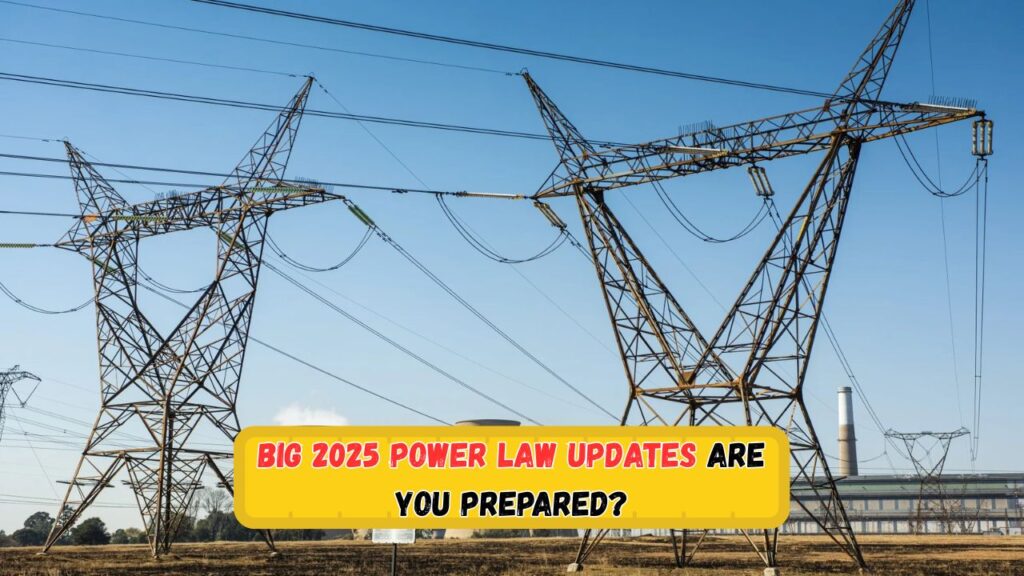Big Changes Ahead: 2025 Electricity Laws to Impact Every Consumer: South Africa is on the brink of a significant transformation in its energy sector, as the government prepares to implement sweeping changes to its electricity laws by 2025. These new regulations are expected to influence every household and business, reshaping how electricity is generated, distributed, and consumed across the nation. As the country grapples with power shortages and seeks sustainable energy solutions, these upcoming changes are poised to address critical issues, ensuring a more reliable and efficient electricity supply. For consumers, this means adapting to new billing structures, potential shifts in electricity pricing, and enhanced opportunities for renewable energy integration. The forthcoming laws will not only aim to stabilize the national grid but also empower consumers to play a more active role in managing their energy consumption.

Understanding the 2025 Electricity Laws
As South Africa gears up for the 2025 electricity laws, it is crucial to grasp what these changes entail and their potential implications. The updated legislation is set to overhaul the existing framework, focusing on enhancing efficiency and sustainability within the energy sector. A key component of the new laws is the incorporation of advanced technologies and infrastructure upgrades, which aim to modernize the national grid. Consumers can expect to see a shift towards smart meters and real-time energy monitoring, which will allow for more accurate billing and greater transparency in energy usage. Additionally, these changes are designed to accommodate a higher percentage of renewable energy sources, such as solar and wind power, aligning with global trends towards greener energy solutions. For consumers, this means potential cost savings in the long term, as well as increased energy security and reduced environmental impact.
Impact on South African Consumers
The 2025 electricity laws will have a profound impact on South African consumers, altering how electricity is accessed and utilized across the country. One of the most significant changes will be in the pricing structure, with a move towards more flexible and dynamic pricing models. This could include time-of-use tariffs, which charge different rates depending on the time of day, encouraging consumers to adjust their usage patterns to off-peak hours for cost savings. Moreover, the new laws are expected to open up the market to increased competition, potentially driving down prices and improving service quality. Consumers will also have greater opportunities to participate in the energy market, with incentives for installing solar panels and other renewable energy systems. These changes aim not only to enhance consumer choice and control over energy consumption but also to support the country’s broader sustainability goals.
Role of Renewable Energy in the New Framework
Renewable energy will play a pivotal role in South Africa’s new electricity framework, as outlined in the 2025 laws. The government is committed to reducing reliance on fossil fuels and increasing the share of renewable energy in the national grid. This transition not only aligns with global environmental commitments but also addresses the pressing need for a more resilient and sustainable energy system. The new laws will facilitate the integration of renewable energy sources by streamlining processes for grid connections and providing financial incentives for both individuals and businesses. Consumers can expect easier access to renewable energy technologies, such as solar panels and battery storage systems, which will empower them to generate their own electricity and potentially sell excess power back to the grid. This shift not only promotes energy independence but also contributes to reducing the country’s carbon footprint.
Preparing for the Transition
As the implementation of the 2025 electricity laws approaches, consumers and businesses alike must prepare for the impending transition. Understanding the changes and how they will affect daily energy consumption is crucial for a smooth adaptation process. It is advisable for consumers to stay informed about the new regulations and explore options for integrating renewable energy solutions into their current energy setups. Businesses should consider conducting energy audits to identify areas for efficiency improvements and potential cost savings. Additionally, engaging with energy service providers and participating in public consultations can provide valuable insights and opportunities to influence policy development. By proactively preparing for the changes, consumers and businesses can not only mitigate potential disruptions but also take advantage of new opportunities for energy savings and sustainability.




